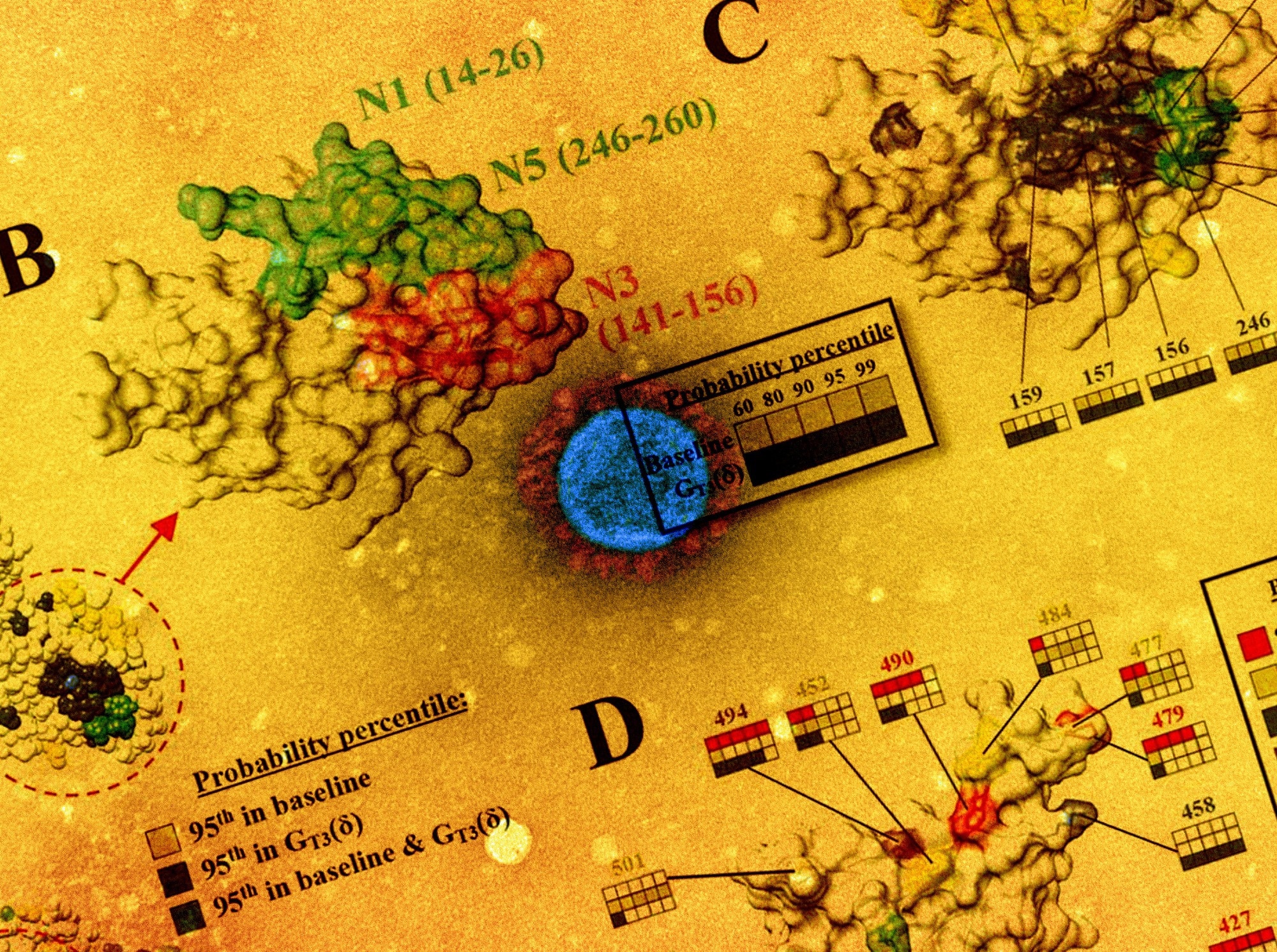The virus that causes COVID-19 undertakes a massive takeover of the body's fat-processing system, creating cellular storehouses of fat that empower the virus to hijack the body's molecular machinery and cause disease.
After scientists discovered the important role of fat for SARS-CoV-2, they used weight-loss drugs and other fat-targeting compounds to try to stop the virus in cell culture. Cut off from its fatty fuel, the virus stopped replicating within 48 hours.
The authors of the recent paper in Nature Communications caution that the results are in cell culture, not in people; much more research remains to see if such compounds hold promise for people diagnosed with COVID. But the scientists, from Oregon Health & Science University and the Department of Energy's Pacific Northwest National Laboratory, call the work a significant step toward understanding the virus.
This is exciting work, but it's the start of a very long journey. We have an interesting observation, but we have a lot more to learn about the mechanisms of this disease."
Fikadu Tafesse, Study Corresponding Author and Assistant Professor of Molecular Microbiology and Immunology, Oregon Health & Science University
 Study: A global lipid map reveals host dependency factors conserved across SARS-CoV-2 variants. Image Credit: NIAID
Study: A global lipid map reveals host dependency factors conserved across SARS-CoV-2 variants. Image Credit: NIAID
Fat as fuel
The team embarked on the study based on observations that people with a high body-mass index and conditions like cardiovascular disease and diabetes are more sensitive to the disease.
The team studied the effect of SARS-CoV-2 on more than 400 lipids in two different human cell lines. Scientists found a massive shift in lipid levels, with some fats increasing as much as 64-fold. In one cell line, nearly 80 percent of fats were altered by the virus; in the other, levels of slightly more than half were changed.
The lipids affected most were triglycerides, those little packets of fat that most patients try to keep to a minimum. Triglycerides are crucial for our health, allowing us to store energy and to maintain healthy membranes in our cells.
It turns out that those oily blobs of fat are also critical for the COVID virus.
"Lipids are an important part of every cell. They literally hold us together by keeping our cells intact, and they're a major source of energy storage for our bodies," said Jennifer Kyle, a biomedical scientist at PNNL who specializes in the measurement of lipids. "They are an attractive target for a virus."
When we need energy, cells break up the triglycerides into useful raw material - three fatty acids that each triglyceride molecule contains.
The team found that SARS-CoV2 doesn't simply boost the number of triglycerides in our cells. The virus also changes much of our fat-processing system, changing the body's ability to use fat as fuel.
The scientists went further, looking at the effects of 24 of the virus's 29 proteins on lipid levels. The painstaking laboratory work was done at OHSU, and then cells were sent to PNNL for measurement and analysis.
Cutting the fuel supply
The team identified a handful of viral proteins whose effect on triglyceride levels was particularly strong. Based on the findings, the team searched databases and identified several compounds that might have potential to disrupt the body's fat-processing system. Several proved effective at stopping the virus from replicating in the laboratory.
An approved weight-loss medication, Orlistat, a lipase inhibitor, stopped viral replication. An experimental compound known as GSK2194069 also stopped the virus. These and other compounds worked against all the SARS-CoV2 variants tested: alpha, beta, gamma and delta.
"As the virus replicates, it needs a continuous supply of energy," said Tafesse, whose team has also seen lipid changes as a result of Zika virus and HIV. "More triglycerides could provide that energy in the form of fatty acids. But we don't know exactly how the virus uses these lipids to its advantage."
The research is the result of an ongoing connection between OHSU and PNNL. Four years ago the institutions launched a collaboration now known as the Pacific Northwest Biomedical Innovation Co-Laboratory, or PMedIC, where scientists and physicians work together to bring basic science and clinical experience together to explore disease and develop innovative therapies.
The effort couples basic research from PNNL, particularly the ability to measure and interpret levels of molecules like lipids, proteins and metabolites, with OHSU's extensive experience with the science of human disease. The collaboration has spawned several research projects and produced results relevant to Zika virus, kidney failure and Alzheimer's disease.
Source:
Journal reference:
Farley, S. E., et al. (2022) A global lipid map reveals host dependency factors conserved across SARS-CoV-2 variants. Nature Communications. doi.org/10.1038/s41467-022-31097-7